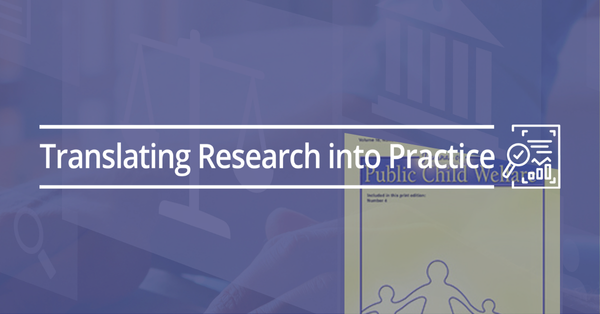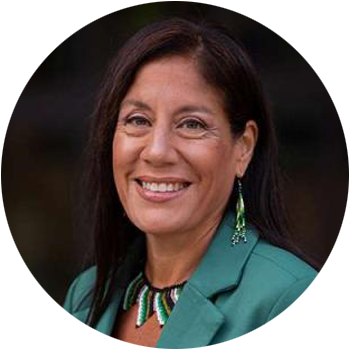Featured Article
Article Title
Understanding the Health and Well-being of Adults 10-15 years after Adoption from the US Foster Care System
Authors
Rose Domanico - RTI International, Research Triangle Park, NC, USA
Heather Ringeisen - RTI International, Research Triangle Park, NC, USA
Marianne Kluckman - RTI International, Research Triangle Park, NC, USA
Kevin White - Social Work, East Carolina University, Greenville, NC, USA
Nancy Rolock - Social Work, Case Western Reserve University, Cleveland, OH, USA
Abstract
Young adult adoptees surveyed 10-15 years after exiting the child welfare system to adoption reported that they were in good or excellent physical health; did not have a substance use problem; were socially connected; had strong feelings of belonging with their adoptive family; and felt very hopeful about their future. However, adult adoptees reported much higher rates of a current mental health problem than adults in the general population. Understanding the mental health and well-being of adult adoptees can help the child welfare field, social service providers, and practitioners promote early screening for mental health concerns and identify service needs.
Keywords
Child welfare; adoption;post-adoption; health;mental health; well-being
Summary of Research
"... Research is limited on how adoptees fare as adults and little is known about their well-being… The National Survey of Child and Adolescent Well-Being (NSCAW) Adoption Study produced a dataset to help understand the long-term experiences of individuals who have exited the US foster care system for adoption. The current study uses that dataset to examine the current health and well-being of young adults who were adopted out of foster care as children… This study simply refers to health and well-being as 'well-being.' In this way, well-being is a broad term that includes physical, mental, and relational health" (p. 1- 2).
"Once a child exits foster care to adoption, contact with the child welfare system (CWS) greatly diminishes, and information on a child's well-being is mostly unknown… information on how those children fare as adults is extremely limited. Previous studies about the well-being of children adopted out of the US foster care system have short follow-up periods (i.e., less than five years) and typically rely on administrative data or the report of adoptive parents as opposed to the adoptees themselves" (p. 2).
"According to the Children's Bureau, there are seven core issues related to adoption that adoptees may experience: loss, rejection, shame and guilt, grief, identity, intimacy, and mastery and control… Children adopted out of foster care may experience different long-term difficulties compared with their peers, such as externalizing behaviors directed toward caregivers, low family functioning and attachment, and school challenges [and] studies have found that as many as 15%–20% of youth adopted out of foster care experience placement instability up to 10 years after adoption… Thus, awareness and understanding of what adoptees experience is important because it relates to their overall health and well-being and the trajectory of their lives...
Events that occur prenatally and during childhood can have lifelong implications; therefore, the focus on well-being should go beyond childhood and into adulthood. However, Research on the well-being of adopted children as they grow into teenagers and then adults is limited" (p. 3- 4).
"This study examines the health and well-being of adult adoptees. The following research questions were addressed:
(1) What characterizes adult adoptees' pre-adoption experiences with the CWS (e.g., maltreatment level of harm, out-of-home placement history, age at the time of adoption, relationship to adoptive parent)?
(2) How do adult adoptees describe their current health and well-being (e.g., physical health, mental health, substance use, feelings of belonging and connectedness, social support, hope for the future)?
(3) Are childhood experiences with the CWS and socio-demographic characteristics associated with adoptees' current mental health problems?" (p. 5).
"In total, 295 adoptive parents (41.79% response rate) and 206 adoptees (25.65% response rate) completed or partially completed surveys for the NSCAW Adoption Study... The present study used a subsample of 192 of the 206 adoptee participants in the NSCAW Adoption Study to study adoptee adult well-being. These 192 included adoptee participants who were 18 years or older at the time of data collection and had a non-missing value for variables related to mental health, physical health, and substance use (93% of NSCAW adoption respondents)" (p. 5- 6).
"... Nearly 70% of adoptees reported having a mental health problem over the course of their childhood, which included emotional, behavioral, learning, or attention problems [and]...58.3% of adoptees reported having a current mental health problem… Given the high proportion of adoptees who reported currently having a mental health problem, additional analyses were conducted to determine what other variables were associated with adoptees' current mental health problem" (p. 9- 10).
"With nearly 60% of adult adoptees reporting a current mental health problem, this was the most concerning finding. Reports of current mental health problems did not vary based on the childhood pre-adoption experiences examined in this study. Specifically, child age at adoption, level of maltreatment harm to child, number of out-of-home placements prior to adoption, adoptive relationship to adoptive parent, and Child Behavior Checklist (CBCL) / Total Problem Scores (TPS) in early adoption were not significantly associated with the adult adoptees' self-report of a current mental health problem" (p. 12).
"...Adult adoptees appear to fare well in adulthood overall except for their mental health. The literature shows that all these pre-adoption variables can be predictors of negative outcomes later in life; therefore, this study's findings may indicate resiliency among adult adoptees for at least some of the outcomes examined in this study" (p. 13).
Translating Research into Practice
Supporting Youth in CWS Early:
"Understanding the health and well-being of adult adoptees can help the child welfare field, social service providers, and practitioners promote early screening for mental health concerns and identify trauma-informed services" (p. 2).
"...The finding that over 96% of children who had mental health problems also reported them as adults suggests that the CWS needs better strategies for supporting youth with mental health difficulties into adolescence and early adulthood… The recalcitrance of mental health problems for children adopted out of the CWS and the discrepancy in mental health problems between adoptees and the general population warrants a call to action for early intervention and services that are trauma-informed, culturally responsive, strength-based, and consistently accessible throughout their adolescence and adulthood. Furthermore, mental health service providers should be knowledgeable about the experiences faced by children involved in the CWS" (p. 13).
Time & Other Barriers:
"Unfortunately, there are substantial waitlists for children who have been referred for evaluations to determine eligibility for early intervention services, and these waitlists have worsened because of the COVID-19 pandemic. Additional funding is likely necessary to increase the number of adoption-informed service providers and to support better meeting the mental health needs of adoptees. Efforts to increase funding and awareness of the need for early intervention is recommended.
Future studies should continue to seek the perspectives of both adoptees and adoptive parents, using qualitative and quantitative approaches. Hearing directly from adoptees about their experiences both before and after adoption is critical to lending a voice to those impacted by CWS involvement. Furthermore, longitudinal approaches, such as the one used in this study, are important to discern cause and effect between putative predictors of post-adoption difficulties (e.g., child behaviors, family cohesion and functioning, parental preparation for adoption) and post-adoption stability and well-being" (p. 14).
Other Interesting Tidbits for Researchers and Clinicians
"Longitudinal studies have shown that well-being is associated with mental and physical health, longevity, healthy behaviors, social connectedness, and productivity. Well-being goes beyond the individual and impacts people's relationships, communities, and their work. Understanding well-being is important for public policy because it allows for a more holistic approach to health care and health promotion" (p. 3).
"With the understanding that mental health is crucial for an individual's well-being and that adoptees are twice as likely to experience psychiatric disorders, have contact with mental health services, or receive treatment in a psychiatric hospital, addressing adoptees' mental health problems is crucial for promoting overall health and well-being" (p. 13).
"Despite separation from family and other trauma experienced from CWS involvement, most adults who exit foster care to adoption report overall good health, feelings of belonging with their adoptive family, and hope for the future. To the best of our knowledge, and despite its limitations, this study is the first that obtains the current perspectives of adult adoptees up to 10–15 years after adoption and then pairs this information with demographic, family, and well-being information for those same adoptees when they were children. This unique approach allows for a richer understanding of adoptees' experiences and perspectives that go beyond childhood into adulthood from adoptees' viewpoints" (p. 14).
Additional Resources/Programs
As always, please feel free to check out the resources below and comment to add more to the discussion!





























